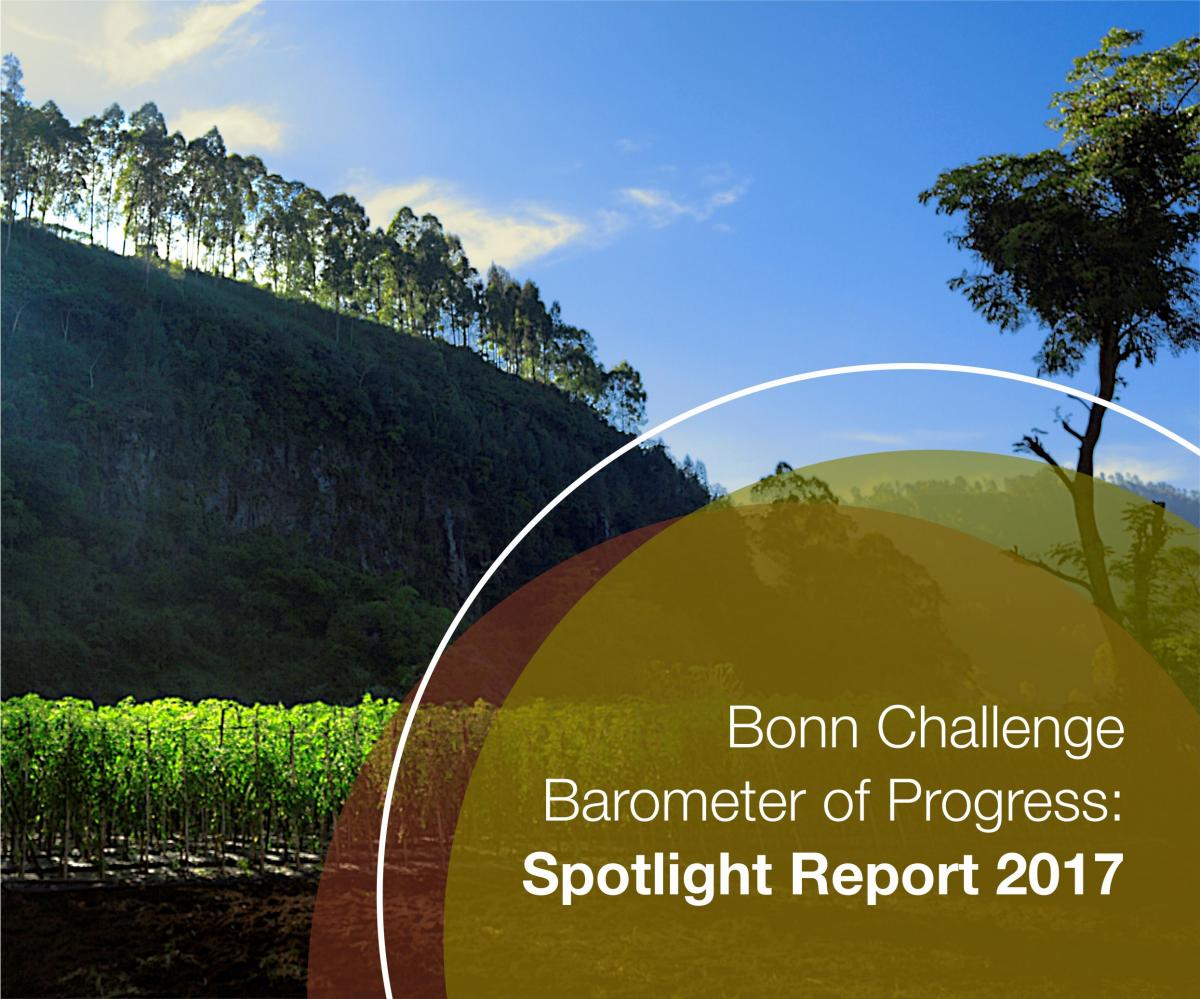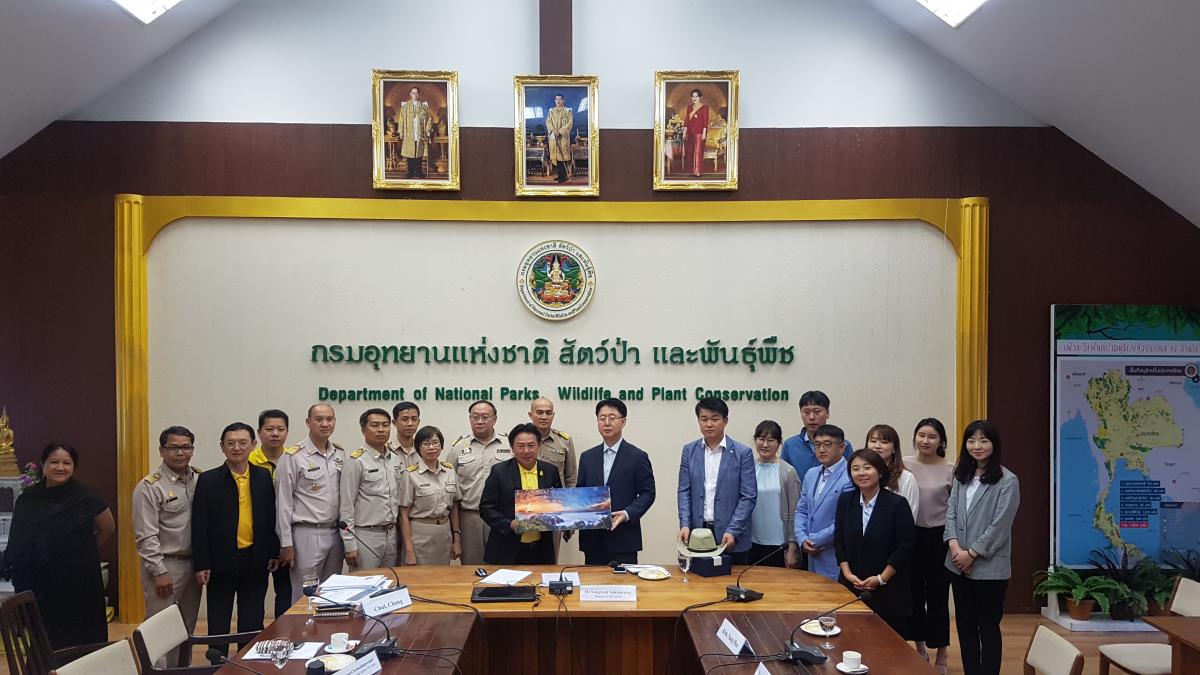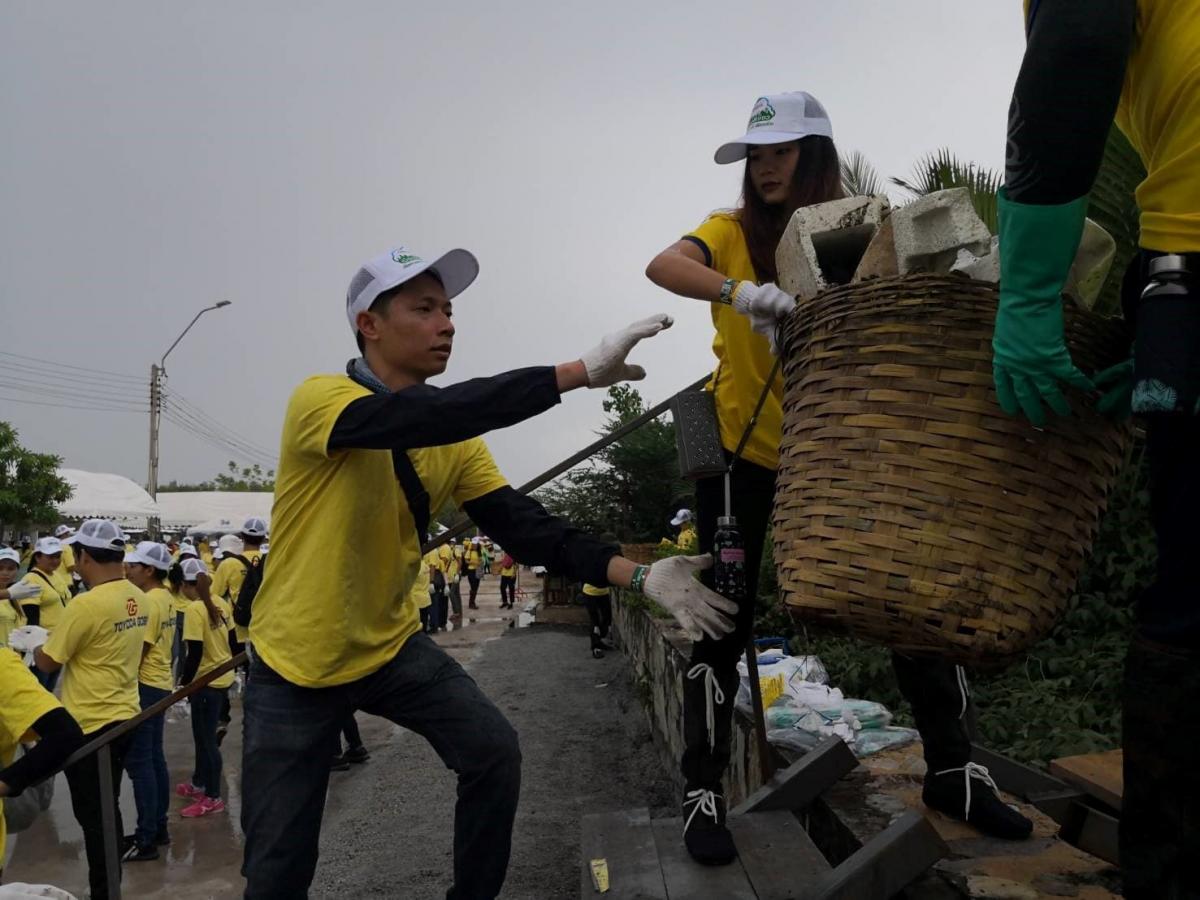IUCN launches first Bonn Challenge Barometer report highlighting restoration progress
19 December 2017— The International Union for Conservation of Nature (IUCN) released the Barometer Spotlight Report 2017 that details the progress Brazil, Mexico, El Salvador, Rwanda and the United States are making in bringing degraded and deforested landscapes into restoration. It is the first product of the Bonn Challenge Barometer, the only global progress tracking protocol focused on forest landscape restoration.

Photo: iStock / IUCN
Released at the Global Landscapes Forum, the Spotlight Report draws attention to the United States’ achievements in treating over 6.4 million hectares (970,000 hectares through the Collaborative Forest Landscape Restoration Program) to reduce the risk of catastrophic wildfires and protect forests and watersheds from 2011 to 2016, Rwanda’s progress in achieving 45% of its 2 million hectare Bonn Challenge commitment and El Salvador’s development of an action plan that has brought approximately 108,000 hectares under restoration to date.
“El Salvador is seeing, firsthand, the benefits of restoring degraded and deforested landscapes. Our Pledge to the Bonn Challenge is 1 million hectares. Under our Action Plan for the Restoration of Ecosystems and Landscapes Project 2018-2022, designed through an assessment supported by IUCN, an additional 400,000 hectares will be brought into restoration to promote mitigation-based adaptation,” said Hon. Lina Pohl, Minister of the Environment and Natural Resources, El Salvador. Up to December 2017, a total of 126,482.60 hectares has been restored in the country.
“Forest landscape restoration has been a founding part of the U.S. national forest planning and management, and will continue to be an essential solution in addressing community and environmental resilience,” said Leslie Weldon, Deputy Chief for National Forest System, USDA Forest Service. The United States’ restoration programmes have improved forest conditions that protect communities from wildfire and support clean water, biodiversity, and job creation. The United States has achieved treatment of 12.3 million hectares in total under its 15 million hectare Bonn Challenge commitment.
The Bonn Challenge has supported Rwanda to bring about 709,761 hectares of land under restoration, which is equivalent to 29.8% of the total country land area. In addition, approximately 186,000 green jobs have been created between 2014 and 2017. “Rwanda was an early adopter of the Bonn Challenge and forest landscape restoration. We have unlocked the potential of restoration to contribute to local livelihoods and are working with other countries in the region to promote and support restoration action,” said Felix Rurangwa, Head of Forestry Research and Extension, Rwanda Water and Forestry Authority.
The 2017 Spotlight report also presents the emerging framework of the Barometer that is being developed through a consultative process with governments. Supported by the International Climate Initiative (IKI) of the German Federal Ministry for the Environment, Nature Conservation, Building and Nuclear Safety (BMUB), the Barometer responds to the Bonn Challenge – a global effort to bring 150 million hectares of degraded and deforested land into restoration by 2020 and 350 million hectares by 2030. To date, 47 governments, private associations and other organisations have pledged 160.2 million hectares to the target.
As shown in the report, there are encouraging success stories of restoration, but only a small proportion are well-known and there has been no framework for collating and analysing them. The Barometer responds to these needs and is being developed through a consultative process with governments and experts.
“The Bonn Challenge has received unprecedented global support and restoration is being recognised as a solution that offers multiple benefits, helping reduce food and water instability, generating sustainable livelihoods, conserving biodiversity and contributing to climate change mitigation and adaptation. There is an urgent need to document the achievements of pledgers and identify implementation hurdles and the solutions necessary to overcome them. The Barometer will fill this gap,” said Dr. Horst Freiberg, Head of Division Sustainable Management of Forests, Climate Change and Biological Diversity, BMUB, Germany.
The protocol will be finalised in 2018. When applied, it will add to the evidence base on the role of FLR in meeting Nationally Determined Contributions (NDCs) to the United Nations Framework Convention on Climate Change (UNFCCC) as well as national goals on economic and social development.
“For the first time, governments have a consistent and systemitised approach to track their leadership and successes in forest landscape restoration. IUCN is well placed to work with our state members to build the Barometer into a strong and inclusive solution that tracks progress, identifies blockages and unlocks support for restoration going forward,” said Stewart Maginnis, Global Director, Nature-Based Solutions Group, IUCN.
Download the full report: https://portals.iucn.org/library/node/47111
Learn more
https://infoflr.org/bonn-challenge/bonn-challenge-barometer
Contact
Swati Hingorani
IUCN Global Forest and Climate Change Programme
+1 202-705-1886



